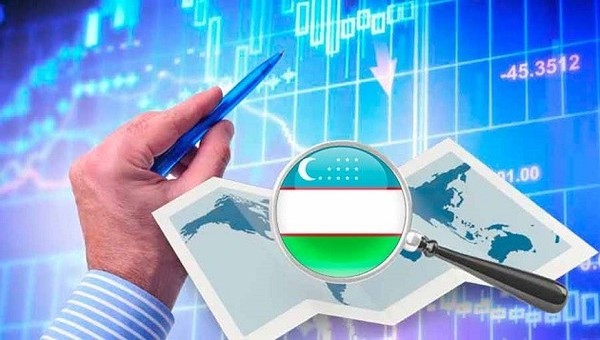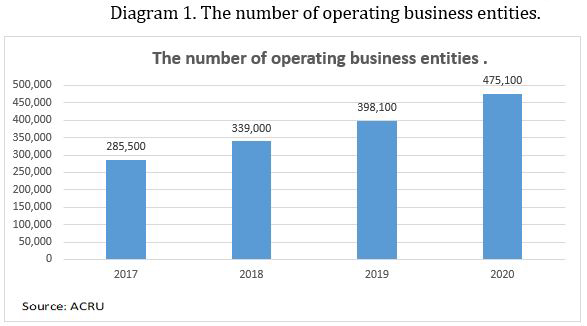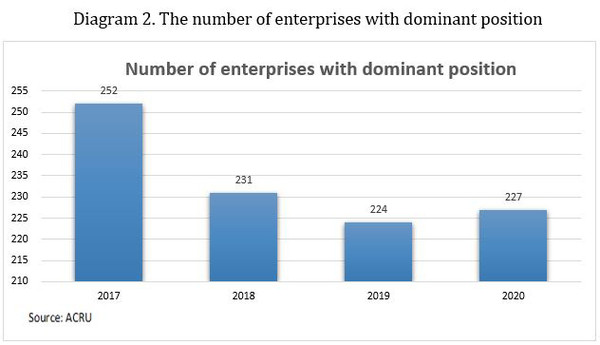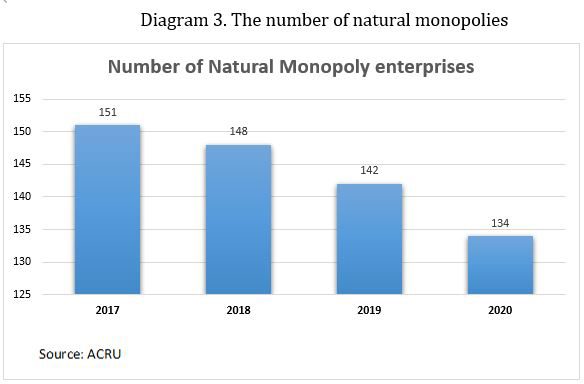In the Republic of Uzbekistan since late 2016
The following article is based on materials provided by the Embassy of Uzbekistan in Seoul to The Korea Post media for publication. The Korea Post media own and operate 3 English and 2 Korean news publications since 1985.—Ed.
Uzbekistan is still living in a period of transition to shift from centrally planned economy legacy to a full-fledged market economy.
Since late 2016, new leadership of the country has pursued an unflinching willingness to remove old paradigms in order to create New Uzbekistan.
In the economic sector, these reforms primarily comprise the flexibility of the exchange rate, a comprehensive tax reform and the liberalization of foreign trade. Uzbekistan’s economy is transforming from a closed, state-centered economic model to an open market economy.

These efforts have been bringing impressive progress, which was acknowledged by international community. Before COVID-19 pandemic, Uzbek economy has advanced significantly.
This can be seen by:
- the strong growth of foreign trade, which increased from USD 24B in 2016 to almost USD 42B in 2019;
- bettering in the Doing Business Index, where Uzbekistan jumped from rank 87 in 2016 to rank 69 in 2020;
- stronger foreign direct investment policy (FDI). According to the World Bank, FDI increased from 2% of GDP in 2016 to almost 4% of GDP in 2019.
The competition law and policy are subject to continuously transforming legislative and institutional changes reflecting Uzbekistan’s efforts to tackle economic challenges.
These challenges include, promotion of small and medium enterprises, gradual reduction of state intervention to economy, decreasing the extent and impact of state owned companies to the competition in the markets, reduction of Red Tape and lowering the regulatory burden on private sector.
In 2020, Uzbekistan leadership announced a new, large-scale 5-year national Strategy and Roadmap to enhance competition in the commodity and financial markets in order to address structural problems inhibiting economic development. Key objective of the Strategy is fostering economic development, innovations, increasing inflow of investments and new jobs, as well as increasing welfare of consumers through ensuring “level playing field” to all market players.
The Strategy actions include such areas as creation of the system of “smart” antitrust regulation and transition to preventive system of competition protection, develop effective tools of regulation of digital markets, implement new tools of market analysis, and decrease level of state price regulation.
Roadmap envisages diminishing domination of SOEs in such key sectors as automobile industry, steel manufacturing industry, telecoms, chemical, banking and oil and gas sectors.
Following the irreversible will to decrease of the extent of State intervention in economy so called Yellow pages rule principle implemented, according which, it’s prohibited to establish SOE if at least 5 private sector entities have already functioning on the relevant market,
Additionally, to extend soft power, mandatory introduction of competition compliance tools to state enterprises and public bodies to early prevention of competition law violations.
Country’s leadership made strong commitment towards creation more enabling environment for SMEs by granting access them Public Procurement through prohibition to participate in procurement procedures for entities affiliated with SOEs, moreover, to ensure level playing field under the State Aid Control all individual privileges and tax benefits, distorting competition, will be revised and cancelled.
Strategy has ambitious goals and indicators such as reducing the number of monopolies by at least 40%, eliminating distortive legal norms by at least 30%, growth in a number of market players by 25%, reducing the share of state intervention by 40 % of GDP, reducing state aid share by 10 % of GDP.
Shaping True Competition
As in many of its former Soviet peers, the low intensity of Uzbekistan’s domestic competition was among the major challenges for decades. Although the government has tried, in the past, to make economic diversification and intensification of domestic competition a priority, these efforts have been at odds with the reality of a gradually increasing role of the state.
The situation has been changing drastically since last 4 years due to irreversible reforms on the way to the market economy, which led
to a significant improvement in the competitive environment.
As a result, the number of operating businesses nearly doubled
(Diagram 1), the amount of enterprises with dominant position reduced significantly (Diagram 2), the concentration ratio was decreased substantially over a four-year period between 2017 and 2020.


The measures taken have led to creation of healthy competition in the of many food markets (soft drinks, juices, bread, bakery, meat and dairy, confectionery, etc.), as well as some non-food products (furniture, carpet and carpet products, medical masks, sandwich panels, chipboard products, textiles, etc.). Dominance of large entities construction materials, coal briquettes, lint and cotton cleaning industry waste, cable and wire products, money transfers, testing and certification, industrial safety expertise services markets has been vanished.
From price controls to creating market incentives
Over a decade, there was a very hard price regulation, which covered more than 130 various products and services. Since 2017, by gradual introducing market mechanisms and boosting commodity exchange trading the number of regulated prices decreased 4 times.
The commodity exchange trade volume has grown significantly since 2016 for 3,5 times and has reached more than USD 5 billion and ensuring participation of 35K SMEs.
Regulation of infrastructural monopolies
Non-discriminatory access to the infrastructure of monopolies is key factor of ensuring the activity of SMEs and gradual competition development. Deep structural reforms have been leading to more competitive environment in such sectors as electricity generation, where former single supplier Uzbekenergo company has been restructured into three-pillar energy generating, transmission and supplying system has been created and further steps have been taken to shape wholesale electricity market in near
4-5 years as several alternative generating facilities, including “green energy” continuously creating on basis of PPP. The same was initiated in gas supplying sector.
In the air transportation sector ‘Open Sky’ regime was introduced
in 9 airports of 11, the flagship dominant air carrier was divided to Airport company and full-fledged carrier.
In telecom sector, an enabling environment for virtual mobile operators has been created, sharp growth in number of e-payment systems from 1 in 2014 to 15 in 2020.
Consequently, abovementioned measures assisted to reduce the number of natural monopolies from 151 to 134 over the four-year period between 2017 and 2020 (Diagram 3).

Three Pillars to Open Market: Comprehensive Competition Development, Privatization and SOE Transformation Strategies
In 2020, after scrutinizing the activities of more than 3K SOEs Presidential Decree "On measures for Accelerated Reform of Enterprises with State Participation and Privatization of State Assets" has been approved. By this crucial document, 32 largest SOEs and business holdings are subject to transformation, in 39 SOEs corporate governance and a financial audit should be implemented, and their operational efficiency should be improved. As a logical extension of this decision Government approved the Strategy of management and reforming of SOEs for 2021 – 2025, which envisages reduction of the number of SOEs by 75%, primary and secondary public offering of shares of at least 20 state-owned enterprises, to increase the number of independent members of the Supervisory Board of SOEs to 30% by 2025.
Challenges of competition policy
Pandemic aftermath
The Government of Uzbekistan responded to the COVID-19 pandemic with vast set of actions and measures. Due date 20 Presidential Decrees were enacted with a rescue package value more than USD 6,1 billion which affected 400,000 business entities and 15 million consumers. The main actions taken were: (a) for businesses- tax vacation and reliefs, credit deferrals, interest subsidies and guarantees, interest-free loans, transport subsidies for exporters, funds for wages of employed workers, (b) for consumers - credit deferrals and guarantees, cancellation of credit fines, and (c) for regions - acceleration of infrastructure projects, suspension of accrual of rental payments for the use of state property.
The COVID-19 pandemic has led to drastic shortages that have resulted in large price increases in certain markets. The ACRU has used its competition and consumer protection authority to address pandemic-related issues, for example by providing guidance businesses that the pandemic does not abrogate or diminish antitrust or consumer protection rules or enforcement. For example, during the pandemics ACRU has monitored 65 product markets for detect price gouging, supply the population with personal protective equipment at 2300 retail outlets, ensuring equal conditions for businesses to access the bidding of 38 types of highly liquid products on commodities exchanges and detect price manipulations.
ACRU finds it more effectively to make state intervention to the markets in means of increasing supply of goods rather than direct price regulation. In this regard, ACRU submitted a proposal to the Government for introduction of state intervention system to the food markets by risk level analysis based on the level of seasonal fluctuations in prices and for accumulation of at least 30% of the volume of “high risk” category of products for the purpose of immediate intervention to the markets during pandemics and supply chains failures by increasing of supply, this covers 15 types of socially significant products on main food and medicines markets. And on the contrary, when businesses facing drastic fall in demand, government should support them by offering Storage aid program where food producers may use public premises for a certain period of time to store their produced food products.
Another effective tool is to ease market access to the new entrants by removing barriers, including excessive technical regulation and licensing requirements. For example, in February 2020 by initiative of ACRU, existing
barriers were removed to ensure free access for new players on several markets, including production of medicines and medical products against viral infections, technical standard for personal protective equipment approved and licensing requirements cancelled.
According to eMarketer, “The pandemic has only accelerated an ongoing shift to the [eCommerce] channel. Even as stores reopen and brick-and-mortar sales rebound, we forecast that ecommerce will lose just a 0.1% share of total retail sales in 2021, before gaining more than 1 percentage point each year through 2024.”
In fact, as quarantine measures continue to exist customers have to purchase goods online through online platforms, consequently online retailers keep on enhancing their business. On the other hand, this trend of development of Digital Markets and TECHGIANTS poses a great challenge for competition authority to regulate and monitor their anticompetitive actions as they are in “grey zone”. ACRU has made the appropriate amendments to the new edition of the Competition Law and digital markets’ regulation is mentioned in key antitrust directions.
ACRU now is working on an initiative aimed to ensure competition on importing goods market by legitimizing parallel imports and introducing exhaustion of intellectual property rights doctrine, as during pandemic several importers of food products tried to abuse their exclusive rights to sell goods to unjustified increase of prices.
Conclusion
the high pace of reforms carried out under Ledership of the President of the Republic of Uzbekistan since last 4 years through unification of exchange rates, liberalisation of foreign trade, removal of various administrative barriers to cross border flow of goods and people, commencing the transformation of banking sector, radical tax reform and reduction of various administrative costs of doing business and drastic decreasing the extent of State intervention in economy undoubtedly has given a great impetus to significantly improve competition in the markets. Obviously, shifting everything to the market does not work, however working against the market is even less effective.
Now Uzbekistan is converting the current momentum into sustainable progress. This efforts include strong supportive measures to create healthy, dynamic and mobile private sector as the driving force and the backbone of the economy, further enhancement of current and introduction of new effective, supportive and reliable institutions and basic conditions to enable employment for women, young people and disadvantaged groups, opening up the education system and providing access to financing.
And, at the end, as almost every country in the world, Uzbekistan needs to adapt economic governance in post-pandemic world to find genuine rational and balance to not distort competition and the same time to enable effective protection to consumers.

